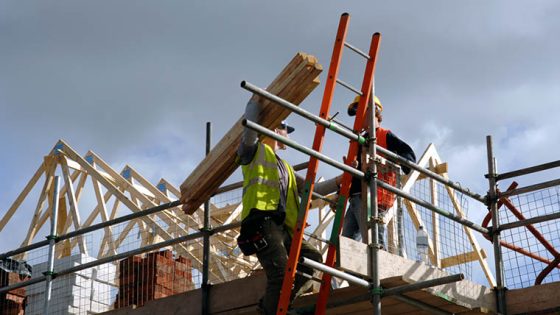Construction SMEs need to ensure they are not caught out by changes to reporting rules on leases, a tax advisory firm has warned.
Firms that do not check asset values based on their end-of-year stocktake may be unaware they could be classed as larger firms and need a statutory audit, according to tax advisory firm Crowe.
The firm warned on Tuesday (22 October) that Companies House could reject the accounts of SMEs that did not comply – and credit ratings could be downgraded as a result.
The risk is due to changes in Financial Reporting Standard 102 (FRS102) that affect all leases held by a company of any size, including plant, equipment and buildings. This is to align UK accounting practice with international standards, a spokesperson from the Construction Plant-hire Association (CPA) told Construction News.
From 1 January 2026, lease reporting thresholds under FRS102 will change from £4m to £5.1m. This affects SMEs that have employed more than 50 people or have turnover above £10.2m.
Thresholds were set in 2016 – and have not been adjusted since to account for inflation. The new rules now mean assets will have to be revalued according to current (2024) values. This could bring more firms into the scope of FRS102 – and trigger the need for an audit.
The CPA spokesperson said that companies falling under the scope of FRS102 “require a statutory audit and have to file greater accounting information” with Companies House.
According to the CPA, based on advice from accountants Barnes Roffe, the new rules mean leases will have to be capitalised as right-of-use assets. The only exemptions are leases with a term of less than 12 months and leases of low-value assets.
Tax advisory consultancy Crowe said that, depending on the firm’s year-end date, changes could affect companies from as early as 1 January 2025, if their financial year ends on 1 January 2026.
Johnathan Dudley, national head of SME corporate business at Crowe, said: “A company with a £200,000 per annum rent bill on a 10-year lease will have its total assets increased by up to £2m at the stroke of a pen, and cause some companies to require an audit as a result.
“That means that past financial results need auditing too, to avoid a qualification of an audit report. The overall effect goes back three years, in practice.”
He advised SMEs to use their end-of-year stocktake to base a decision on whether they are impacted, after consulting with a tax specialist.
Dudley told CN: “Auditors cannot attend a stock count, retrospectively, two years hence.”
He warned accounts could be rejected if the new rules are not met – creating serious financial risk.
Dudley said: “Sadly, these days, even a technical audit qualification is regarded as grounds to downgrade credit rating… and this can prove catastrophic for businesses.”
The current FRS102 rules are based on thresholds set in 2016. The government committed to audit reform in July’s King’s Speech but has provided no further detail since then. The CPA said the government might make an announcement before the end of the calendar year to stop construction firms being burdened with an extra expense.
It said: “The potential good news is that these thresholds have been set to substantially increase from this autumn, which will provide a measure of relief to a number of companies. A firm date for the uplifted threshold is still [awaited] from the government.”
The Institute of Chartered Accountants in England and Wales (ICAEW) said there firms could also benefit from the changes, by gaining a better understanding of the assets they hold.
Fahad Asgar, ICAEW technical manager, corporate reporting faculty, said: “The new requirements will better reflect the financial impact and commitment of leases on an entity’s financial performance and position. This will provide greater transparency and comparability for the users of financial statements.”

